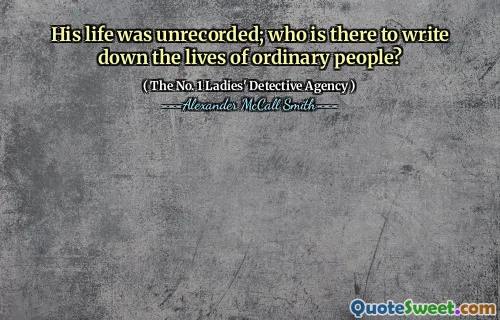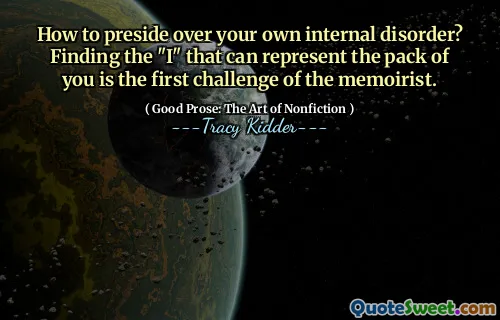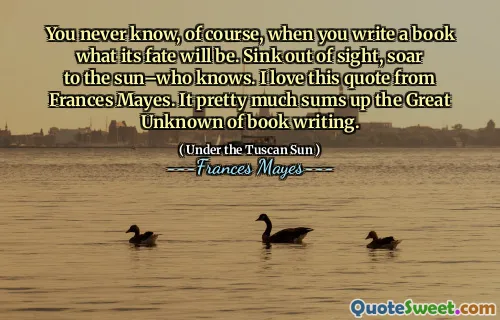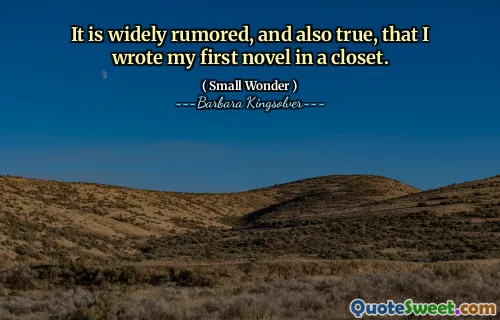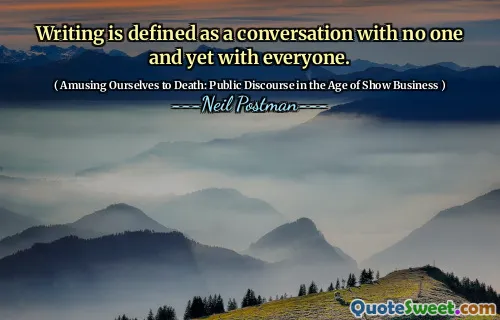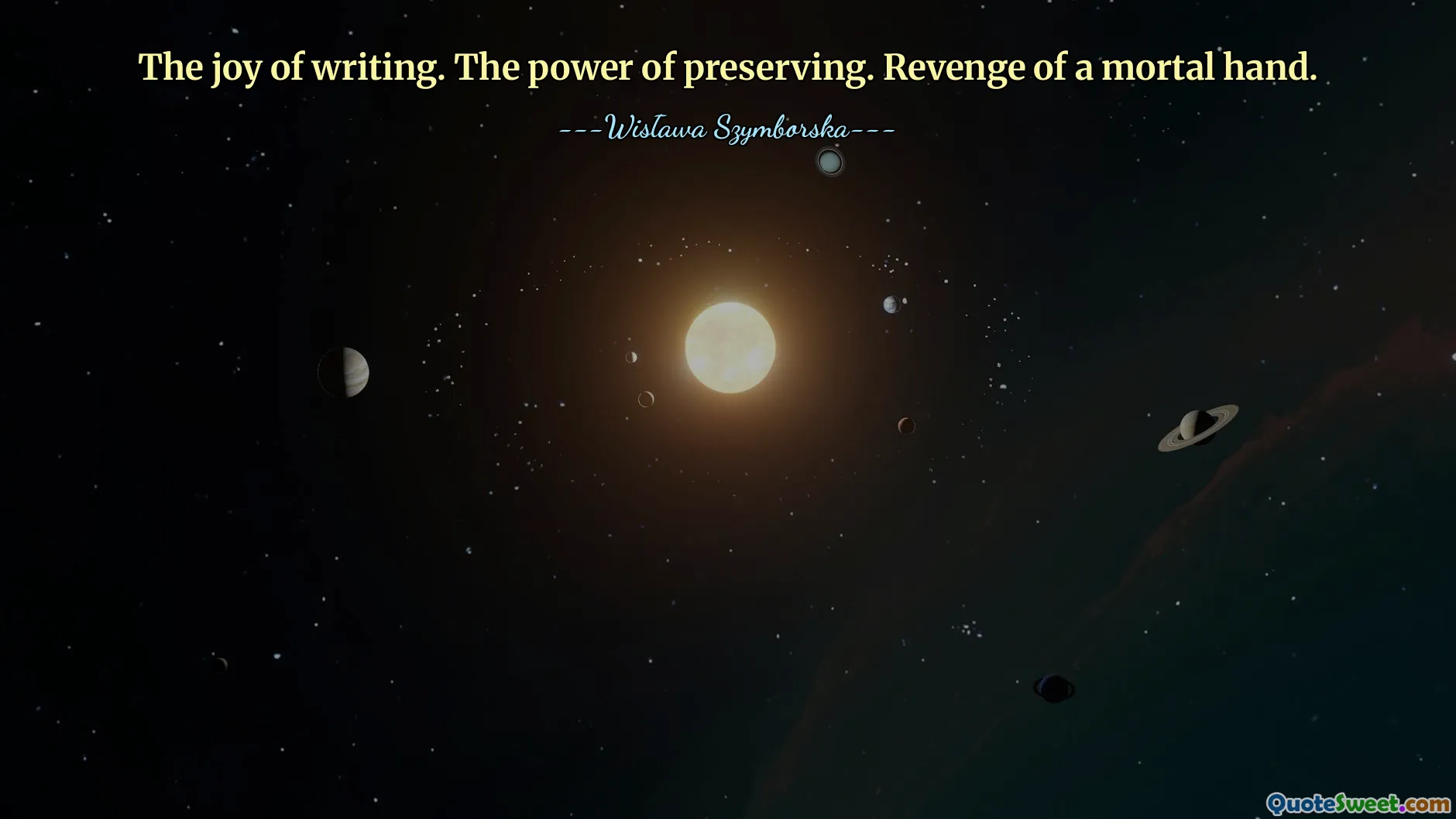
The joy of writing. The power of preserving. Revenge of a mortal hand.
This quote elegantly captures the multifaceted nature of writing and its profound impact on both the writer and the world. "The joy of writing" reflects the deeply personal and creative satisfaction that comes from translating thoughts into words. It symbolizes the freedom and expression that writing affords, an unparalleled act of creation that is both cathartic and joyous.
"The power of preserving" highlights the enduring nature of the written word. Writing allows ideas, emotions, and experiences to transcend time and space, preserving moments and memories long after the author has passed. This phrase reminds us that writing is not just about the present; it is about creating a lasting legacy, a bridge connecting generations, cultures, and histories.
Finally, the phrase "Revenge of a mortal hand" carries a compelling tension. It suggests that while human beings are mortal and finite, their handwriting, their stories, and the knowledge they inscribe have an almost immortal power to resist oblivion. There is a quiet yet formidable revenge here—how from the limited abilities of a human hand can emerge something eternal and unyielding against the erasure of time.
In combining joy, preservation, and revenge, the quote invites us to appreciate the transformative and defiant power of writing. It challenges us to consider how through our own creative acts, we assert our existence, overcome mortality, and engage in a timeless dialogue with the future. The blend of poetic beauty and philosophical depth found here resonates deeply with anyone who values the written word and its ability to shape human experience.







